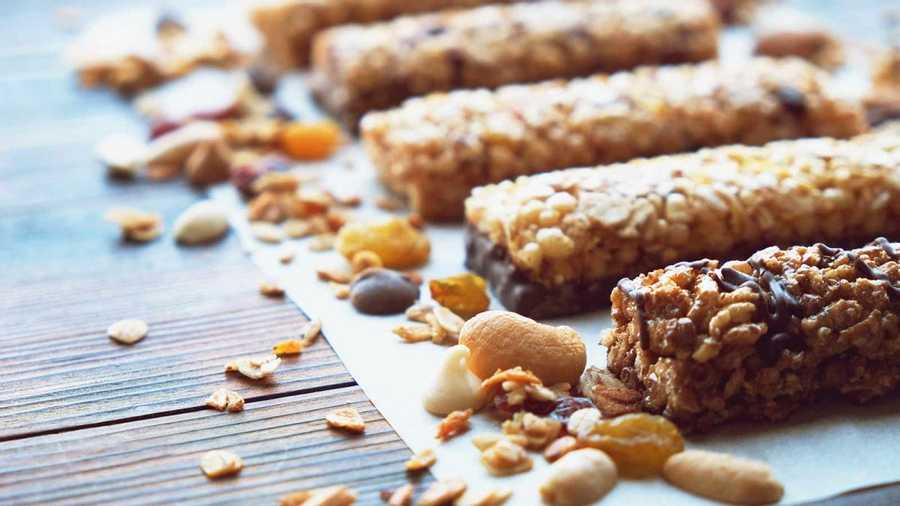Explore the World's Best Ideas
Join today and uncover 100+ curated journeys from 50+ topics. Unlock access to our mobile app with extensive features.
Getting enough protein
If you are worried about the amount of protein in your diet, you are probably eating more than enough.
Many people think if a meal has protein in it, it is full of health and goodness. Food companies are profitably adding to anything they can. You can now buy protein bars, protein shakes, protein noodles, protein bagels, protein cookies and even protein coffee.
70
797 reads
Protein is the most important macronutrient
Protein, along with fat and carbohydrate, is one of the three basic macronutrients, and probably the most important.
Protein contains nitrogen, without which we cannot grow or reproduce. Protein contains nine amino-acids that we can only get from food. Without them, our hair, nails, bones, muscles and immune system would be severely weakened.
71
647 reads
We eat too much protein
According to official guidelines, a minimum of 0.8g of protein a day per kilogram of body weight is recommended. Yet, the average person in the US and Canada gets a full 90g a day, 20% more than the recommended amount. The average European consumes 85g of protein a day, and the average Chinese person 75g.
We hope our protein-enhanced food will lead us to better health, yet singling out protein can lead to an unbalanced view of health.
72
627 reads
Why we obsess about protein
We can only understand the intensity of our protein obsession as a part of a broader set of dietary battles.
- A 1950s study, based on Mediterranean populations, showed that a healthy diet consists of lots of carbohydrates with limited quantities of saturated fat.
- But the modern supermarket interpreted the low-fat diet as high-sugar and high-refined-carbohydrates, which led to our current epidemic of diet-related ill-health.
- Protein is the one safe thing the population feel they can still put their faith in.
The tendency to think about what we consume in terms of nutrients, rather than real whole ingredients, means making the same old mistakes about nutrition in a new way.
73
439 reads
Protein fixation can become an eating disorder
Certain people, such as athletes, may require more than the minimum recommendation of 0.8g per kilo of bodyweight. The problem is that when we think more protein is better, we don't know when to stop. This fixation with protein can ultimately become a form of an eating disorder.
Adding extra protein beyond our needs tends to shorten our lifespan. It can also harm people with underlying kidney or liver problems.
71
428 reads
Not all protein is equal
Ultra-processed whey is not the same as salmon, either in nutrition or in the experience of eating it. Salmon will be high in omega-3 fatty acids and vitamin B12, whereas whey protein is low in vitamins, most minerals and fat-free.
Many view vegetable proteins such as lentils and peas as "low quality" compared with meat, eggs, and dairy, even though they contain all essential amino acids in smaller amounts. With a varied diet, this shouldn't matter.
72
414 reads
Getting our protein ratios back to a healthy level
Our protein needs do not remain the same over the human lifespan. 0.8g per kilogram of body weight may be enough for a young adult, but from age 50 onwards, protein requirements increase as we progressively lose muscle.
Most people who can afford a high-protein plate already eat enough protein. But economic circumstances force many people into protein malnutrition, as noticed among elderly people admitted to hospital. The deficit of protein is indeed part of a problem - that the wrong people ask if they are eating enough protein.
65
442 reads
IDEAS CURATED BY
A good night sleep and a helathy morning routine is what I work on constantly.
Katherine L.'s ideas are part of this journey:
Learn more about health with this collection
How to handle conflicts
How to identify and regulate emotions
How to develop self-awareness
Related collections
Similar ideas
Read & Learn
20x Faster
without
deepstash
with
deepstash
with
deepstash
Personalized microlearning
—
100+ Learning Journeys
—
Access to 200,000+ ideas
—
Access to the mobile app
—
Unlimited idea saving
—
—
Unlimited history
—
—
Unlimited listening to ideas
—
—
Downloading & offline access
—
—
Supercharge your mind with one idea per day
Enter your email and spend 1 minute every day to learn something new.
I agree to receive email updates

